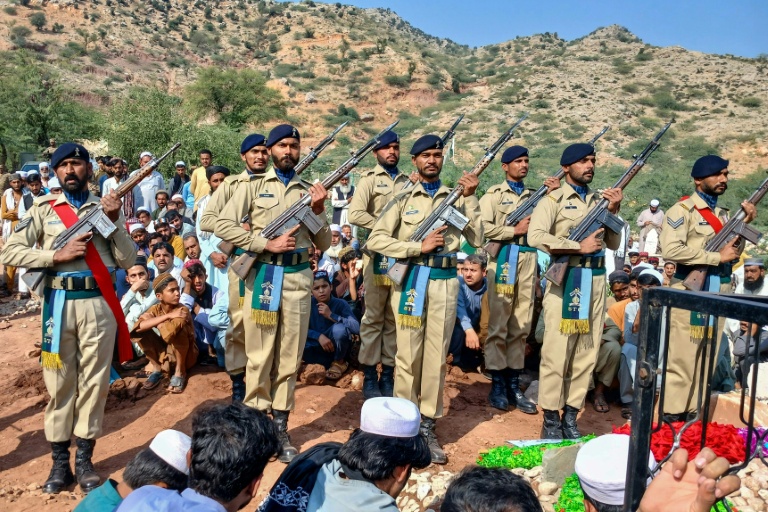Politics
Pakistan, Afghanistan Set for Talks in Qatar After Deadly Strikes

Pakistan is set to engage in discussions with Afghan officials in Qatar on Saturday, following a series of air strikes that killed at least ten people in Afghanistan. The strikes, which occurred on July 28, 2023, marked a significant breach of a temporary ceasefire that had provided a brief respite from escalating violence along the border.
Pakistan’s state television reported that Defence Minister Khawaja Muhammad Asif and intelligence chief General Asim Malik would lead the delegation to Doha for talks with representatives of the Afghan Taliban. Confirming the meeting, Afghan Taliban government spokesman Zabihullah Mujahid stated that a high-level team, headed by Defense Minister Mohammed Yaqub, had departed for the discussions.
The ceasefire, which had lasted for 48 hours, was intended to halt nearly a week of intense border clashes that resulted in numerous casualties among both military personnel and civilians. The recent escalation began when Afghanistan accused Pakistan of violating the truce, claiming that air strikes targeted three locations in Paktika Province. A senior Taliban official indicated that Afghanistan would respond to the attacks.
According to a provincial hospital official, the air strikes resulted in the deaths of ten civilians, including two children, while twelve others sustained injuries. The Afghanistan Cricket Board also reported the deaths of three players who were present for a domestic tournament in the region, reducing an earlier reported toll of eight casualties.
On the Pakistani side, a senior security official confirmed that precision aerial strikes were conducted against the Hafiz Gul Bahadur Group, a faction linked to the Tehreek-e-Taliban Pakistan (TTP). The group has been accused of a recent suicide bombing and gun attack on a military camp in North Waziristan, which left seven Pakistani paramilitary soldiers dead.
Security concerns are central to the ongoing tensions, with Islamabad alleging that Afghanistan provides a haven for TTP militants, a claim that the Afghan government denies. The situation has become increasingly volatile, particularly following a series of explosions in Kabul just days before the ceasefire began. The Taliban’s foreign minister was on an unprecedented visit to India during this period, further complicating matters between the two nations.
Despite the ceasefire agreement, Pakistan’s Defence Minister Khawaja Muhammad Asif accused Kabul of acting as a “proxy of India” and of orchestrating actions against Pakistan. In a post on social media platform X, he stated that future diplomatic efforts would no longer be framed as peace appeals and warned that any source of terrorism would face severe repercussions.
In response, Taliban spokesman Zabihullah Mujahid emphasized that Afghan forces had been instructed to refrain from initiating attacks unless provoked. He conveyed to troops that they have the right to defend their nation if Pakistani forces engage first.
As both nations prepare for talks in Qatar, the focus will likely be on de-escalating tensions and addressing the underlying security issues that have led to this cycle of violence. The outcome of these discussions could have significant implications for regional stability and bilateral relations moving forward.
-

 Science4 weeks ago
Science4 weeks agoALMA Discovers Companion Orbiting Giant Red Star π 1 Gruis
-

 Top Stories2 months ago
Top Stories2 months agoNew ‘Star Trek: Voyager’ Game Demo Released, Players Test Limits
-

 Politics2 months ago
Politics2 months agoSEVENTEEN’s Mingyu Faces Backlash Over Alcohol Incident at Concert
-

 World2 months ago
World2 months agoGlobal Air Forces Ranked by Annual Defense Budgets in 2025
-

 World2 months ago
World2 months agoMass Production of F-35 Fighter Jet Drives Down Costs
-

 World2 months ago
World2 months agoElectrification Challenges Demand Advanced Multiphysics Modeling
-

 Business2 months ago
Business2 months agoGold Investment Surge: Top Mutual Funds and ETF Alternatives
-

 Science2 months ago
Science2 months agoTime Crystals Revolutionize Quantum Computing Potential
-

 Top Stories2 months ago
Top Stories2 months agoDirecTV to Launch AI-Driven Ads with User Likenesses in 2026
-

 Entertainment2 months ago
Entertainment2 months agoFreeport Art Gallery Transforms Waste into Creative Masterpieces
-

 Business2 months ago
Business2 months agoUS Government Denies Coal Lease Bid, Impacting Industry Revival Efforts
-

 Health2 months ago
Health2 months agoGavin Newsom Critiques Trump’s Health and National Guard Plans









